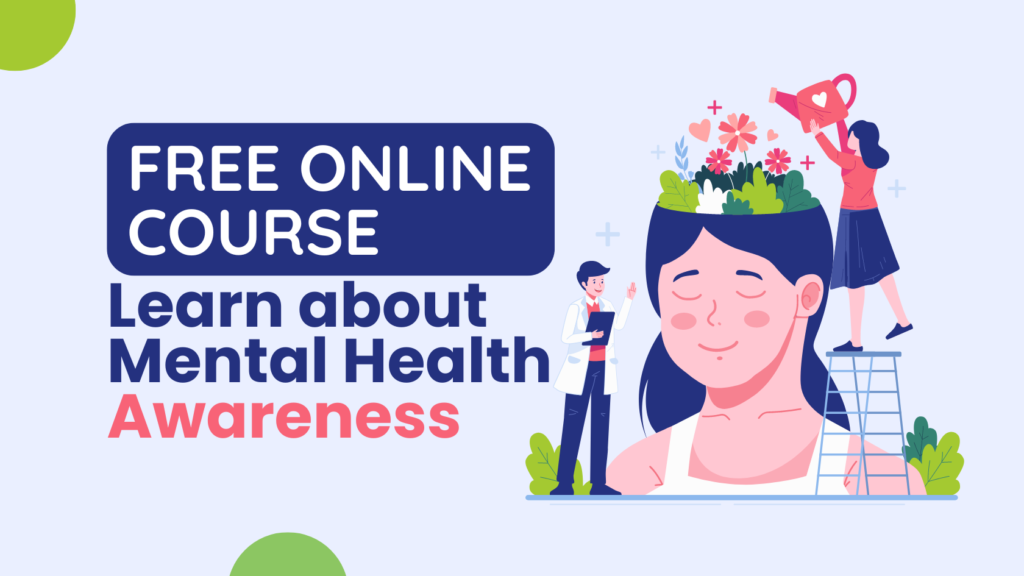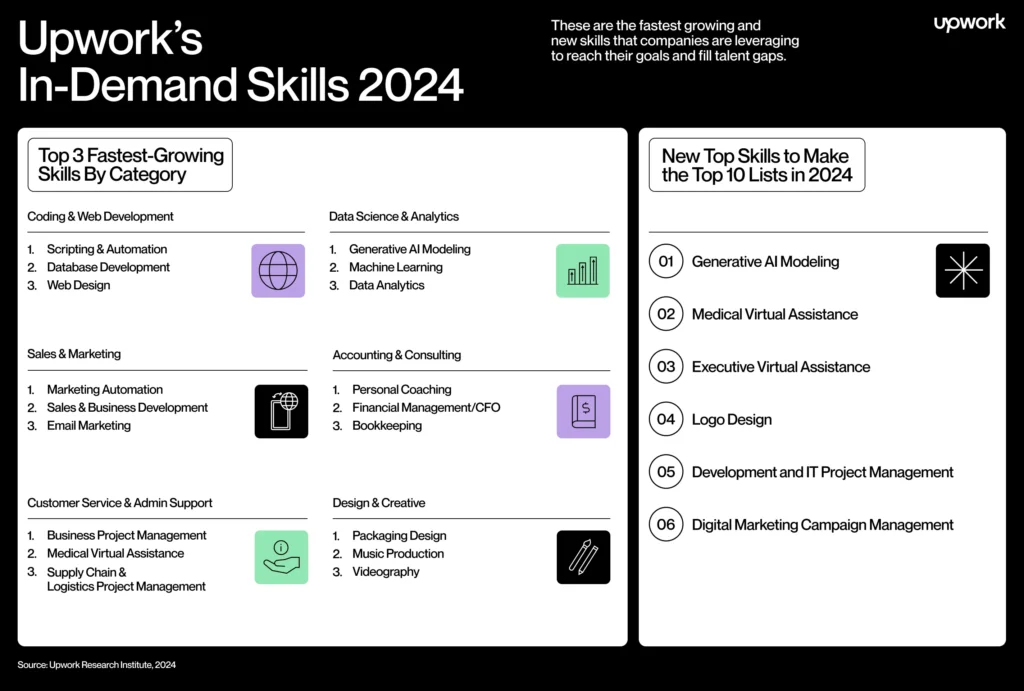Not everyone has the grades to get into Harvard, but guess what? You don’t need them. All you need is a laptop, an internet connection, and a desire to learn. Harvard offers dozens of online courses through edX, and you can audit them for free. These courses are taught by Harvard professors and faculty, bringing top-quality education straight to your home.
While you won’t earn college credit, you can opt to pay for a course completion certificate. This credential can be a valuable addition to your resume and job applications, showcasing your commitment to continuous learning.
With HarvardX, anyone can access world-class education without the hefty tuition fees or the need to relocate. Whether you’re looking to dive into computer science, data science, business, humanities, art & design, health and medicine, mathematics, social sciences, or education & teaching, there’s a course for you.
So, why wait? Start learning with Harvard’s free online courses today and take the first step towards achieving your educational and career goals—all from the comfort of your own home.
Check Other Post –
20 MIT Free Online Courses With Certificate
32 Best Personal Finance Books You Must Read
Grow Your Business: 15 Best Free Shopify Courses & Tutorials
Quick Navigation
ToggleHarvard Free Courses on Business
Exercising Leadership: Foundational Principles
This course will teach you the foundations of what it takes to be a compelling and effective leader. You will learn how to recognize and break down problems, how to understand the role of authority, how to build and renew trust-filled relationships, how to deal with conflict, how to excel amid change, and more.
Technology Entrepreneurship: Lab to Market
This course will help you develop an understanding of how entrepreneurs build successful businesses by moving technology from the lab to the market. You’ll learn the complexities of the commercialization process and what it takes to answer difficult questions regarding how products will be used, when they are ready to hit the market, and how to secure funding, among other things.
Entrepreneurship in Emerging Economies
In brief, this course explores how to be a successful entrepreneur in a developing country with an emerging economy. It teaches you how to fill a void in the market while navigating all of the barriers imposed by an emerging economy. You’ll learn how to identify opportunities for entrepreneurship in growing markets and develop an understanding of how to problem-solve in these situations.
Harvard Free Courses on Art & Design
Pyramids of Giza: Ancient Egyptian Art and Archaeology
This course explores the art, archaeology, and history of the Giza pyramids. You’ll learn the cultural and religious significance of the Giza Pyramids, tombs, and temples, explore the reasons hieroglyphics were painted in tombs, and dive into ancient Egyptian art, among other topics. Additionally, the course explores how new technology is unlocking old secrets surrounding the pyramids, tombs, temples, and more.
The Architectural Imagination
This course teaches the fundamental principles of architecture by diving into some of the world’s most historical buildings. In this course, you’ll learn how to understand architecture both from a cultural lens and a technical achievement lens. You’ll analyze prominent buildings and engage in hands-on activities, including drawing and modeling exercises.
Beethoven’s 9th Symphony and the 19th Century Orchestra
In this course, you’ll learn how to identify and explain 18th- and 19th-century orchestral music, understand the instruments and voices that make up an orchestra and choir, and recognize the cultural context and significance of Beethoven’s 9th Symphony. By the end, you’ll understand the basics of musical form and analysis.
Harvard Free Courses on Science
The Einstein Revolution
This course walks through the life and work of Albert Einstein to explain the “changing role of physics” over the past 120 years. The course covers Einstein’s engagement with relativity, quantum mechanics, Nazism, nuclear weapons, philosophy, the arts, and technology and will help you understand physics in broader history. While some lessons will dive into physics concepts, others will explore the impact physics has had on art, poetry, politics, and more.
Energy Within Environmental Constraints
This course examines the engineering, environmental impact, and economics of energy systems. It addresses the major question of how to provide abundant energy to everyone in an environmentally and economically sustainable manner. It is “rich in details of real devices and light on theory.” For example, instead of diving into the details of electrodynamics, the course will teach you enough about solar panels for you to make informed decisions about where they would be profitable to install.
Backyard Meteorology: The Science of Weather
This course will teach you how to forecast the weather “just by looking out your window.” Throughout the course, you will learn things such as the role that air, water, and wind play in weather systems, how to estimate wind speed and direction, how to avoid being struck by lightning, and how to interpret data to predict the next day’s weather.
Harvard Free Courses on Humanities
The Path to Happiness: What Chinese Philosophy Teaches Us about the Good Life
This course challenges what you assume it means to be happy and live a meaningful, impactful life by exploring ancient Chinese philosophy, ethics, and political theory. This course is part history and part self-help, as it mixes ancient philosophical concepts into modern-day life to help you increase personal happiness. The course dives into passages written by many prominent Chinese philosophers.
Women Making History: Ten Objects, Many Stories
This course covers women in the 20th century and shares the stories of those who “pushed boundaries, fought for new rights, and challenged contemporary notions of what women could and should do.” In this course, you’ll learn about the tactics that women use to create valuable change. You’ll learn how they embraced education, adopted new technologies, created art, pushed against discrimination, and more.
Rhetoric: The Art of Persuasive Writing and Public Speaking
This course will give you an introduction to persuasion, a skill that is important in nearly every industry. You’ll learn about the theory and practice of rhetoric and the art of persuasive writing and speech. Using examples of speeches and written pieces created by historical figures, including Martin Luther King Jr., John F. Kennedy, Margaret Chase Smith, Ronald Reagan, and others, the course will teach you how to create and defend arguments and effectively convince an audience to share your point of view.
PredictionX: Lost Without Longitude
This is a course on the history of navigation. The instructor uses video, text, infographics, and Worldwide Telescope tours to teach students about the tools and techniques that navigators have used over centuries of time. You’ll learn about the challenges of navigating without a GPS system, dive into the scientific progress of navigation, and explore how Jupiter’s moons, lunar eclipses, and clockmakers all influenced navigators in the past.
Harvard Free Courses on Computer Science & Programming
CS50: Introduction to Computer Science
This course is Harvard’s introductory computer science and programming course. While taking this course, you can expect to learn concepts like abstraction, algorithms, data structures, encapsulation, resource management, security, software engineering, and web development. Additionally, you’ll receive an introduction to many of the most popular programming languages, including C, Python, SQL, and JavaScript plus CSS and HTML.
CS50’s Web Programming with Python and JavaScript
This course is the next step after Harvard’s CS50: Introduction to Computer Science course. It dives deeper into the “design and implementation of web apps with Python, JavaScript, and SQL using frameworks like Django, React, and Bootstrap.” You’ll be able to engage in hands-on projects that help you learn to “write and use APIs, create interactive UIs, and leverage cloud services like GitHub and Heroku.” By the end of this course, you’ll have the knowledge you need to design and launch applications on the Internet.
CS50’s Introduction to Game Development
In this course, you can expect to learn about the development of 2D and 3D interactive video games. You’ll be able to explore the development of the games you may have played as a kid, including Super Mario Brothers, Pong, Legend of Zelda, Angry Birds, and other classics. You’ll engage in lectures and hands-on projects to learn the principles of 2D and 3D graphics, animation, sound, and collision detection. And by the end of the course, you’ll have programmed some of your own games.
CS50’s Introduction to Artificial Intelligence with Python
This course will teach you the concepts and algorithms at the foundation of modern artificial intelligence. You’ll get to complete hands-on projects that introduce you to the theories behind graph search algorithms, classification, optimization, reinforcement learning, and other artificial intelligence and machine learning topics. By the end of the course, you should have the basic tools and knowledge you need to design intelligent systems of your own.
Harvard Free Courses on Health and Medicine
The Health Effects of Climate Change
In this course, you can expect to learn how the changing climate impacts public health and better understand how to mitigate and adapt to the impacts. The course examines air quality, nutrition, infectious diseases, and human migration to explain how increases in greenhouse gases have and will continue to affect our health. But it isn’t all doom and gloom. You’ll have the opportunity to listen to experts’ solutions and recommendations for responding to the challenges.
Improving Global Health: Focusing on Quality and Safety
This course focuses on the quality of healthcare being provided around the world. It addresses questions such as how to define quality healthcare, how to measure it, and how to improve it. According to the course description, this course will prepare you with the tools and information that you need to raise questions, come up with solutions, and promote changes in the quality of healthcare.
Strengthening Community Health Worker Programs
This course teaches the core concepts of community health worker programs and covers what it takes to expand and strengthen large-scale programs so that fewer people around the world have to die preventable deaths. “Despite medical and technological advances, half of the world’s population lacks access to essential health services, and over 8.9 million preventable deaths occur every year,” the course description states. In this course, you’ll learn how to design, advocate for, and build community health worker programs.
Harvard Free Courses on Data Science
Causal Diagrams: Draw Your Assumptions Before Your Conclusions
This is an introductory course to causal diagrams. Throughout the course, you will learn different types of causal diagrams as well as how to create effective causal diagrams and use them to identify common biases and guide data analysis.
Principles, Statistical and Computational Tools for Reproducible Data Science
This is a course on the principles and techniques of reproducible research so that you can effectively write your own reproducible research papers. You’ll learn a number of concepts, patterns, paradigms, and tools that support your data science and reproducible research endeavors, no matter what you’re researching.
Harvard Free Courses on Mathematics
Calculus Applied!
In this course, you can expect to learn how calculus is used outside of the classroom. The course virtually visits people in diverse fields, including economics, education, statistics, medicine, and more, to explore how calculus and mathematical models are used in their work. According to the course description, this course is designed to supplement a single-variable calculus course at the high school or college/university level so that you better understand how calculus and mathematical models are applied.
Introduction to Probability
This Introduction to Probability course will give you the tools and knowledge you need to understand data, science, philosophy, engineering, economics, and finance and make informed predictions. According to the course description, you can expect to leave the course with a “strong foundation for the study of statistical inference, stochastic processes, randomized algorithms, and other subjects where probability is needed.”
Harvard Free Courses on Social Sciences
American Government: Constitutional Foundations
This course is a dive into the political culture and the Constitution. It explores the origins of U.S. political culture, how that influenced the creation of the constitution, and how the Constitution continues to influence politics and policy in the United States today. You can expect to learn about the pillars of the Constitution, what the framers were trying to accomplish, how power is divided between federal and state governments, and what individual rights Americans have.
U.S. Political Institutions: Congress, Presidency, Courts, and Bureaucracy
This course covers the three branches of government and dives into how they operate, which unique powers they each have, and how they work together. You can also expect to learn about things like the role of voters, political parties, and the broader federal bureaucracy.
Introduction to American Civics
Taught by professors at Harvard Law School, this course is essentially an introduction to the legislative process. Throughout the course, you can expect to learn the design of the U.S. government and the distinctive roles of each branch, better understand where laws come from and how they are made, and become able to distinguish between the roles of federal and state law, among other things.
Child Protection: Children’s Rights in Theory and Practice
In this course, you’ll receive an overview of children’s rights around the world. You’ll learn about the origins of child protection in international human rights law, about the impact of violence, exploitation, and abuse on children’s emotional and physical development, how to better analyze child protection issues, and how to evaluate and improve child protection systems, among other things.
Harvard Free Courses on Education & Teaching
Introduction to Family Engagement in Education
This course dives into the fundamentals of family engagement, which, in brief, is what families do at home and outside of school hours to support their children’s learning and development. It also describes the partnership between schools, teachers, and parents/guardians that fosters student development. Throughout the course, you will learn the fact-based benefits of family engagement and develop a better understanding of the concept overall.
Early Childhood Development: Global Strategies for Interventions
This course is geared towards those around the world working in early childhood education. It dives into examples of the best practices and explores what makes them effective and how they can be scaled so that you can implement the strategies within your own organization. Additionally, you’ll become familiar with the proper steps to build a successful program and develop an understanding of which steps to prioritize.
All of these courses allow you to learn directly from some of the most renowned professors in the world. It is hard to think of a better way to spend your free time than taking Harvard courses online. There’s no money or serious time commitment attached to these courses. All you need to do is enroll.
FAQ:
1. What are Harvard Free Online Courses?
Harvard Free Online Courses are courses offered by Harvard University through online platforms like edX. These courses cover a wide range of subjects including Computer Science & Programming, Art & Design, Health and Medicine, Data Science, Mathematics, Social Sciences, and Education & Teaching. They are designed and taught by Harvard faculty, providing learners with access to high-quality educational content at no cost.
2. How do I enroll in a Harvard Free Online Course?
To enroll in a Harvard Free Online Course, visit the edX website and browse through the available courses offered by Harvard University. You can select a course that interests you and enroll by creating an edX account. Enrollment is typically straightforward and only requires basic information to get started.
3. Do Harvard Free Online Courses offer certificates?
Yes, Harvard Free Online Courses offer certificates of completion that you can earn by paying a fee. These certificates are issued by Harvard University and edX and can be added to your resume or LinkedIn profile to showcase your new skills and knowledge. Certificates validate your achievement and demonstrate your commitment to continuous learning.
4. Are Harvard Free Online Courses self-paced?
Yes, Harvard Free Online Courses are designed to be self-paced, allowing learners to study according to their own schedules. While some courses may have suggested timelines or deadlines for assignments, you have the flexibility to complete coursework at your convenience. This flexibility makes it easier to balance learning with other commitments.
5. What subjects are available in Harvard Free Online Courses?
Harvard offers a diverse range of subjects in its Free Online Courses, including Computer Science & Programming, Art & Design, Health and Medicine, Data Science, Mathematics, Social Sciences, and Education & Teaching. Whether you’re interested in improving technical skills or exploring humanities and social sciences, there are courses tailored to various interests and career goals.
6. Do Harvard Free Online Courses require any prerequisites?
Most Harvard Free Online Courses do not have strict prerequisites, making them accessible to learners with varying educational backgrounds. However, some advanced courses may recommend prior knowledge or experience in specific subjects. Course descriptions typically outline any recommended prerequisites to help you determine if a course is suitable for your skill level.
7. Can I interact with instructors or other students in Harvard Free Online Courses?
Harvard Free Online Courses often include interactive elements such as discussion forums, where you can engage with instructors and fellow learners. While the level of interaction may vary depending on the course, forums provide opportunities to ask questions, share insights, and collaborate on assignments. Instructors or teaching assistants may also participate in discussions to provide guidance and feedback.
8. Do Harvard Free Online Courses count towards college credit?
No, Harvard Free Online Courses typically do not count towards college credit. However, they offer valuable learning opportunities and allow you to acquire new skills and knowledge in various subjects. If you’re seeking college credit, consider enrolling in Harvard Extension School courses or other accredited programs that offer credit-bearing options.
9. How long do Harvard Free Online Courses take to complete?
The duration of Harvard Free Online Courses varies depending on the subject and course structure. Courses may range from a few weeks to several months, with a suggested time commitment of a few hours per week. You can review course details, including estimated workload and duration, before enrolling to plan your study schedule accordingly.
10. Are Harvard Free Online Courses recognized by employers?
Harvard Free Online Courses are recognized for their academic rigor and quality, making them valuable additions to your resume or professional profile. While they do not provide formal college credit, earning a certificate of completion demonstrates your dedication to learning and mastery of specific skills. Employers value candidates who pursue continuous education and demonstrate initiative through online learning opportunities.








![20 Best Free Online WordPress Courses for Beginners with Certificates [2024]](https://freepremiumdeals.com/wp-content/uploads/2024/07/20-Best-Free-Online-WordPress-Courses-for-Beginners-with-Certificates-2024-1024x576.png)
![15 Best Google Analytics Courses (GA4) Online with Certificates [2024]](https://freepremiumdeals.com/wp-content/uploads/2024/07/15-Best-Google-Analytics-Courses-GA4-Online-with-Certificates-2024-1024x576.jpg)